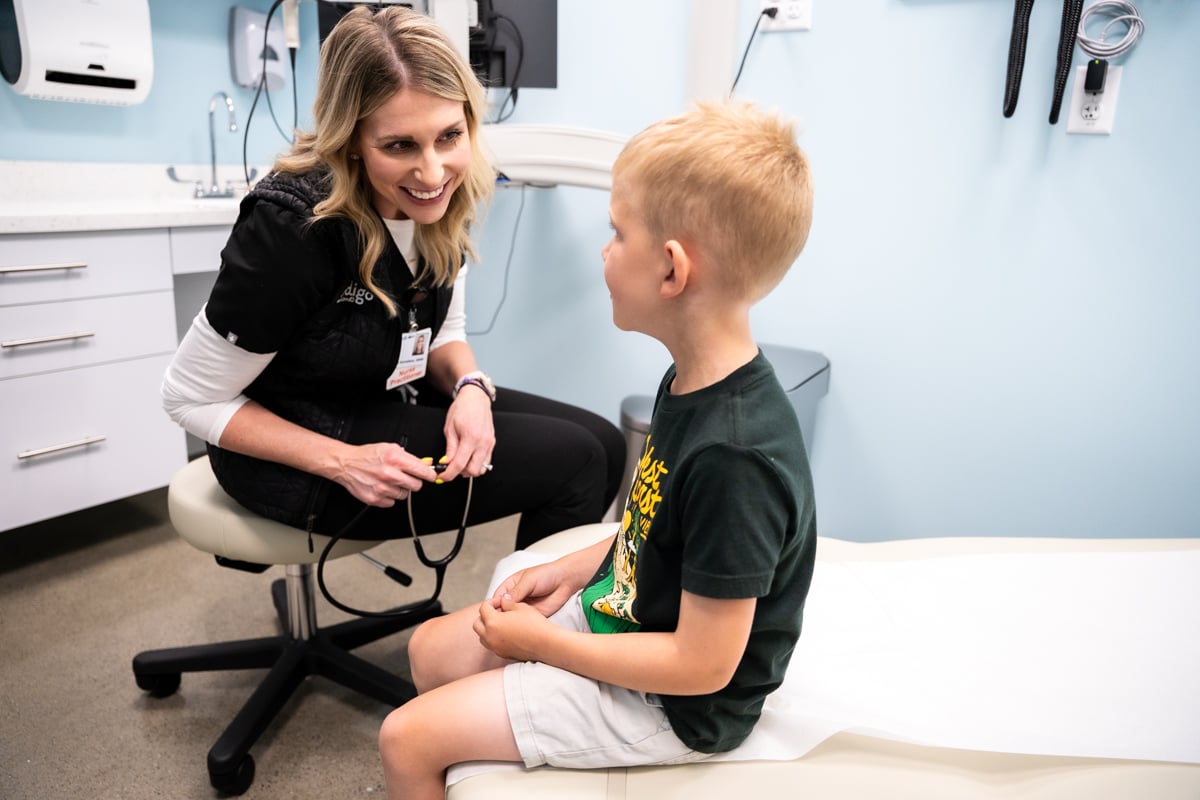Summer’s here, and that means it’s time to get outdoors for some fun under the sun. But too much of a good thing can sometimes be bad for you.
While we relish warm, sunny days, especially here in the Pacific Northwest, it’s easy to overlook precautions to protect our skin from the sun’s harmful rays.
Skin cancer is the most prevalent form of all cancers in the U.S., and cases are on the rise. One in five people will develop skin cancer, and among those diagnosed, 60 percent will develop skin cancer a second time within the next decade.
While the statistics are alarming, the good news is there are some simple ways to dramatically lower your likelihood of developing skin cancer.
The dangers of overexposure
Doctors concur that sun exposure, sunburn and sun damage can be very dangerous, and sometimes life-threatening. Even a single episode of sunburn can have negative effects over the long term. Nevertheless, people often believe the occasional sunburn isn't a big deal. Not true. The facts speak for themselves:
- Five sunburns over your lifetime double your melanoma risk, according to the Skin Cancer Foundation. For the average person who visits the beach on occasion or spends time lounging by the pool, skin cancer is a likely outcome.
- Risks are even higher among teens and young adults. Parents of teens are all too familiar with the term “choose your battles.” Preventing sunburn should be at the top of the list.
Research shows that individuals ages 15-20 who have five or more serious sunburns—those that cause the skin to blister—increase their melanoma risk by as much as 80 percent.
- Late-stage melanoma is dangerous. While outcomes for melanoma treatment are generally favorable, particularly when detected early, late-stage melanoma can be very dangerous. Even non-melanoma cancers, like basal cell and squamous cell skin carcinomas, can be dangerous if not treated properly.
Sun safety tips
Sunburn prevention is critical to your safety, health and well-being. Even so, at least half of all adults in the U.S. experience sunburn every year, according to U.S. Pharmacist.
What's more, 66 percent of adults who have at least one sunburn episode annually will get sunburn multiple times per year.
A few simple strategies will reduce or prevent your risk of sunburn:
- Use sunscreen—and apply it correctly. Everyone should use sunscreen, regardless of age, gender, occupation or skin type. The same holds if you’re already tan.
- Use sunscreen that protects you from UVA and UVB rays and has a sun protection factor (SPF) of at least 15 (30 SPF or higher is best).
- Apply 30 minutes prior to going outdoors, even on overcast days. Up to 80 percent of UV rays can penetrate clouds.
- Reapply every two hours, when you get wet, or whenever you sweat or use a towel.
- Cover all areas, including feet, ears, neck and back of hands.
- Limit sun exposure, especially when UV rays are at their strongest from 10 am to 3 pm. During these hours, it’s best to seek out shade as much as possible.
For outings at the beach or park, bring an umbrella, sunshade or canopy. At home, find a shady spot underneath an awning, tree or covered porch.
- Wear sunglasses that filter out harmful rays. Not all sunglasses are created equal.
When purchasing sunglasses, look for a label, tag or sticker that says “100% protection against both UVA and UVB” or “100% protection against UV 400.”
And don’t forget about the kiddos. Doctors advise children 6 months and older wear sunglasses.
- Wear protective clothing. When possible, wear clothes that provide full sun protection, like long-sleeve shirts and pants. If that proves impractical or uncomfortable, opt for a T-shirt, beach coverup or other protective clothing.
Most people will develop skin cancer on their face, ears, neck and scalp, so a hat with a brim all the way around is a great option.
- Keep kids protected—for life. Sunscreen isn’t just for grownups. U.S. Pharmacist reveals that 25 percent of exposure to harmful UV rays happens before the age of 18.
According to Cleveland Clinic, regular and responsible use of sunscreen in children under 18 years old has the potential to reduce instances of skin cancer later in life by as much as 72 percent.
Treatment for sunburn, sun damage and sun poisoning
Despite our best efforts, sunburn, sun damage, and/or sun poisoning (a severe sunburn) may be inevitable. Proper treatment of sun overexposure will ease discomfort, ensure a quick recovery and prevent further damage.
- Use a pain reliever, if needed. Ibuprofen or acetaminophen taken every four hours will help reduce inflammation from sunburn and may help keep damage and discomfort at bay.
- Slather on the moisturizer. Aloe vera gel, after-sun lotion and/or skin restoration products will help keep your skin as moisturized as possible.
- Hydrate. Sunburn draws fluid to the skin's surface and away from the body. Drink plenty of water to replace lost body fluids and help restore moisture to the skin.
- Use cold compresses or take a cool shower if you develop a fever, chills or raised body temperature.
- Resist picking at or peeling skin. You’ll be tempted, but doctors and dermatologists recommend against it. Peeling skin after sunburn can lead to permanent skin conditions, such as scarring.
- Cover up. When outdoors, keep sunburned skin completely covered.
When to seek medical care
If home treatment doesn’t ease your symptoms or they worsen, you may need medical treatment. A serious sunburn left untreated may lead to infection. Visit your nearby Indigo Health if you have:
- An extremely painful sunburn
- Blisters over your sunburn
- Excessive swelling
- Other severe symptoms such nausea, dizziness, fever and/or chills
Our friendly providers will assess your sunburn symptoms and recommend or prescribe treatment, if needed. We’re here every day from 8 am to 8 pm to treat minor illnesses and injuries and offer online care 24/7.


